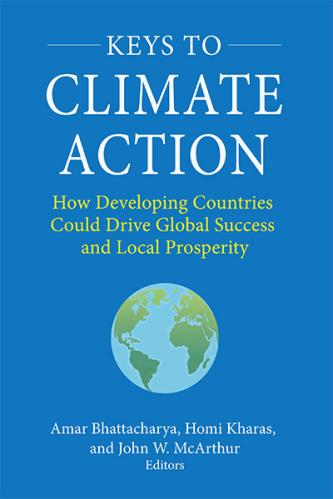This chapter was published in the edited volume “Keys to Climate Action: How Developing Countries Could Drive Global Success and Local Prosperity.”
How should a climate-vulnerable coastal country heavily dependent on coal transition to a sustainable development path? In this working paper, Basri and Riefky discuss the climate transition in Indonesia. Basri and Riefky first assess Indonesia’s economic and environmental situation, noting that Indonesia is one of the countries most affected by climate change, facing issues ranging from disrupted life in its myriad coastal communities to food insecurity. Then, they discuss the measures taken by Indonesia to transition to a green economy, including the design of NDC and financing efforts. Based on this, the authors discuss how Indonesia has transitioned in terms of political economy, fiscal transition, and coal phase-out. Finally, the authors outline an ambitious blueprint for Indonesia’s climate transition, which includes the joint efforts of the government, civil society, and the international community.
Interview with the authors
What is one main message from your chapter?
The success of achieving inclusive, affordable, and smooth climate transition in Indonesia will be determined by its ability to come up with policies that are financially, politically, and institutionally practical.
What presents the biggest opportunity?
Framing climate policies as part of long-term development agenda that are aligned with the government’s priorities and political interest will gain necessary support to push forward the transition agenda.
What serves as the biggest challenge?
Indonesia’s high dependency on coal and fossil fuel transpire into high transition cost, stemming from large, vested interest of the private sectors and high political cost from the government.
What gives you the most hope?
The increasing role of civil society in advocating climate issues will help raise awareness and build a public consensus, which exerts more pressure on the policymakers and tilts the balance of political incentives in favor of more aggressive climate actions.
The Brookings Institution is committed to quality, independence, and impact.
We are supported by a diverse array of funders. In line with our values and policies, each Brookings publication represents the sole views of its author(s).









